Reasons to Quit Meth

Introduction: A Path to Recovery
Quitting methamphetamine (meth) is not only pivotal for regaining health but also crucial for restoring personal life balance and well-being. Meth, a potent synthetic stimulant, wreaks havoc on both body and mind, often leading users into a vicious cycle of dependency. As individuals or loved ones of those struggling with meth addiction seek clarity, understanding the reasons to quit, the struggles associated with withdrawal, and the pathway to recovery becomes essential.
The Dangers of Meth: Health and Psychological Effects
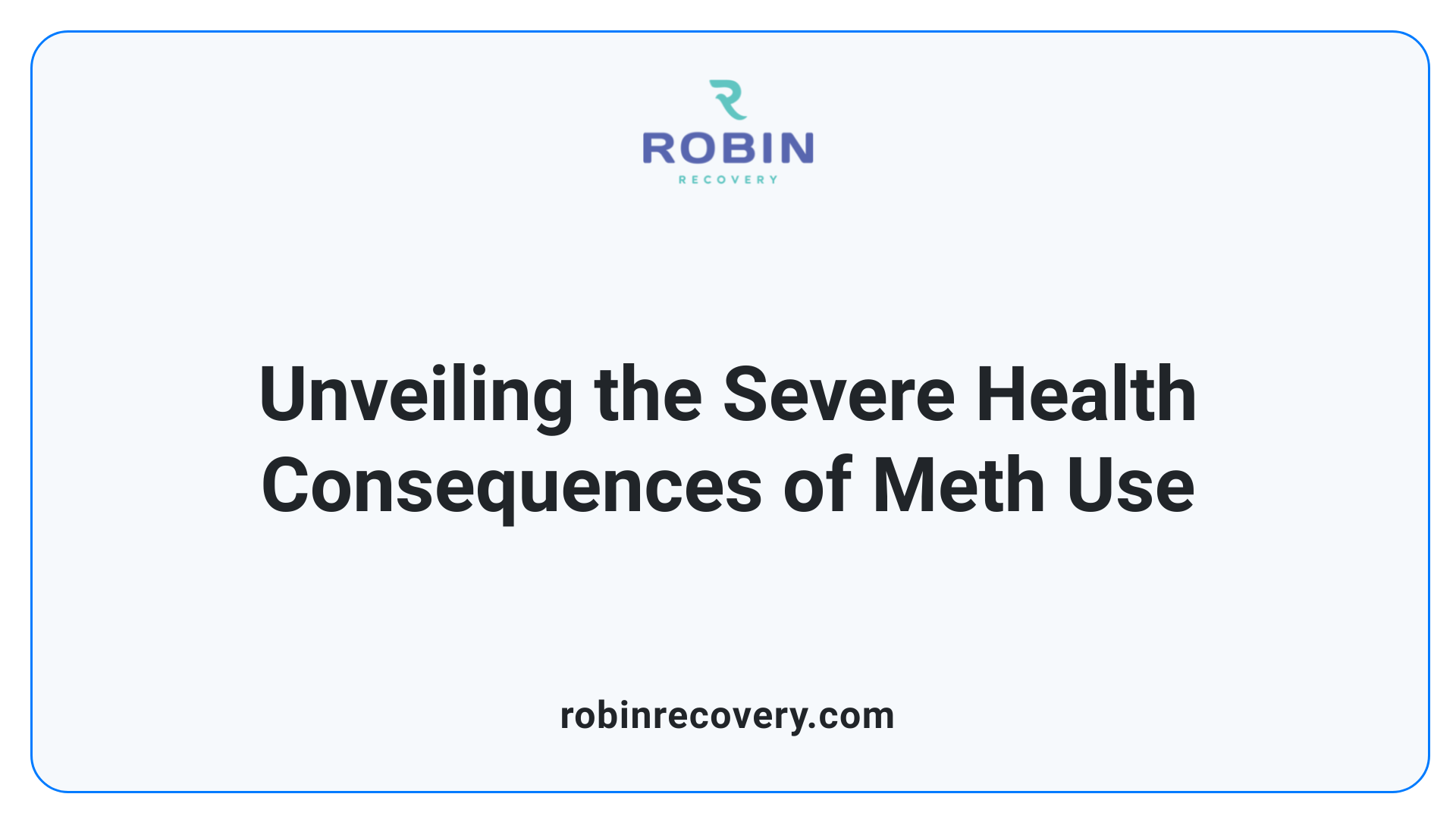
Physical and mental health consequences of meth use
Methamphetamine is a potent stimulant that can lead to severe health issues over time. Chronic use may lead to significant physical changes, including extreme weight loss and dental problems commonly known as 'meth mouth.' Additionally, meth abuse is linked to potentially life-threatening conditions like heart attacks and strokes due to cardiovascular stress.
The consequences extend beyond the body, particularly impacting users' mental health. Long-term meth users may experience cognitive impairments, emotional dysregulation, and an increased risk of psychological disorders like anxiety and depression. The withdrawal process can yield intense symptoms, including fatigue and cravings, which makes quitting challenging.
Permanent brain damage and psychological disorders
One of the most alarming effects of chronic meth use is its capacity to cause permanent brain damage. Research indicates meth can alter brain structure, diminishing dopamine production, which affects how individuals experience pleasure. This alteration can lead to persistent mood disorders, paranoia, and even hallucinations long after cessation. Notably, individuals with a history of meth use are particularly prone to conditions such as schizophrenia and severe anxiety, reinforcing the urgency of seeking help and quitting the drug.
To combat these issues, comprehensive treatment strategies involving medical supervision and mental health support are essential to help individuals recover and regain a stable quality of life.
Social Repercussions and Relationship Damage
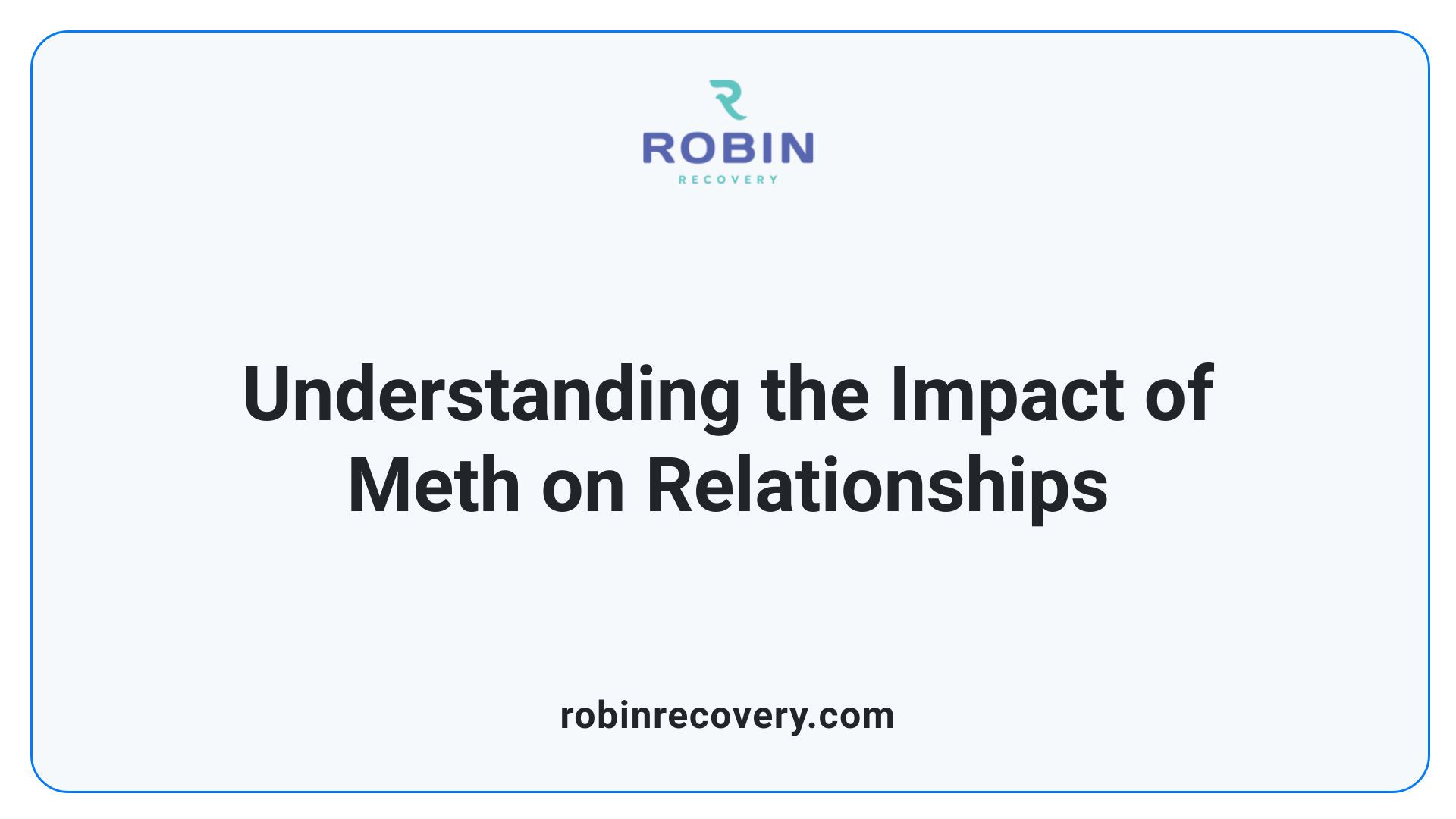
Impact on interpersonal relationships
Meth addiction can severely harm relationships with family, friends, and colleagues. Users may neglect responsibilities and fail to provide the emotional support that loved ones need. The erratic behavior exhibited by meth users often creates rifts and mistrust, leading to isolation and strained connections. Users might prioritize obtaining and using meth over nurturing their relationships, further exacerbating feelings of loneliness.
Social and legal consequences
The legal implications of meth use can be extensive. Users may engage in criminal activities to support their addiction, including robbery and illicit manufacturing. This not only puts them at risk of incarceration but also jeopardizes their relationships with family members who may feel ashamed or frightened due to their actions.
Individuals struggling with meth addiction often find themselves navigating a toxic social environment, where arrests or associations with criminal behavior can lead to societal stigma. The burden of legal issues can also create immense stress, making recovery more challenging. Emphasizing support and understanding from those around them becomes crucial in helping individuals reclaim control over their lives and relationships.
What are Some of the Hardest Drugs to Quit, and Where Does Meth Rank?
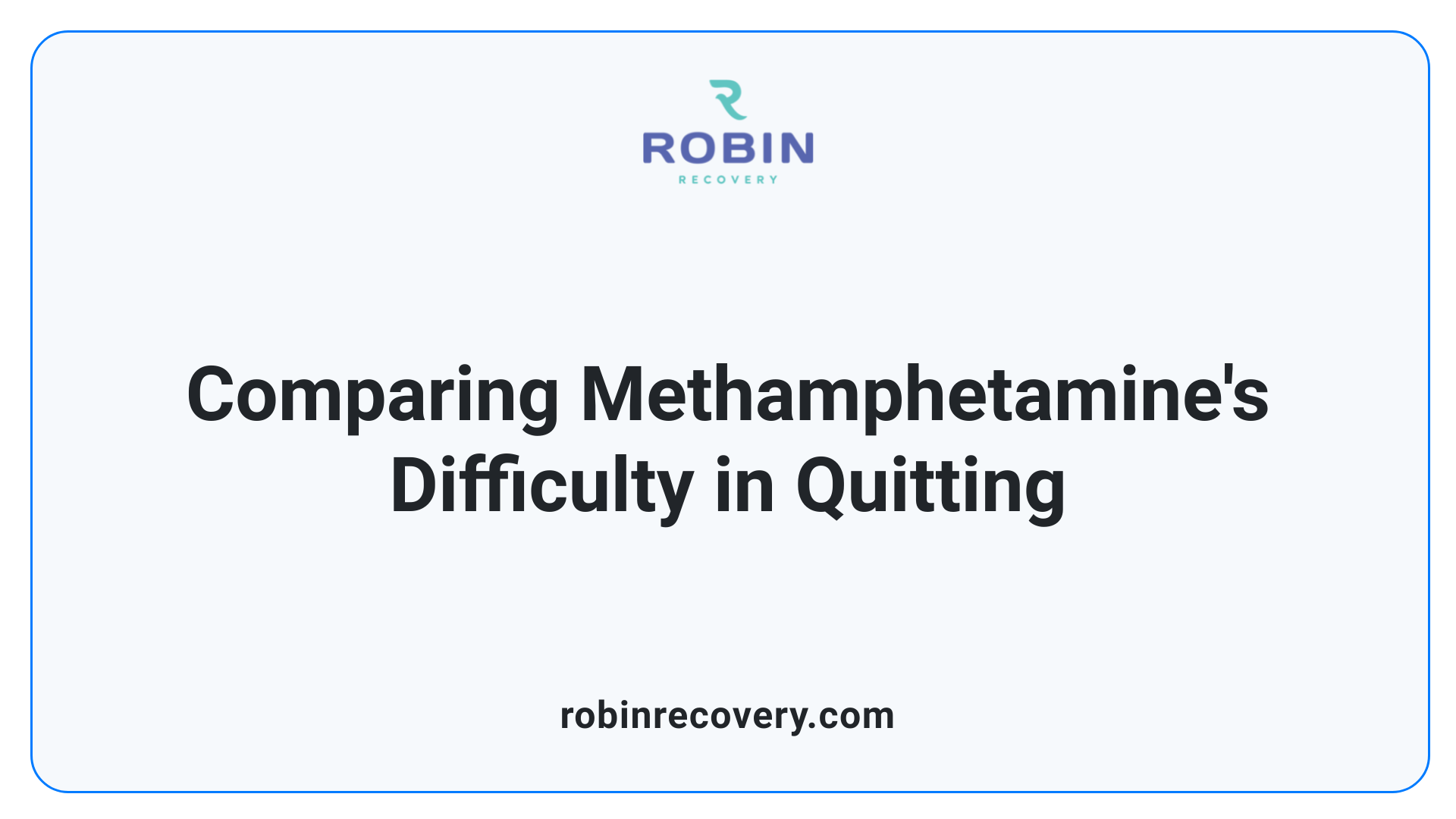
What Makes Some Drugs Hard to Quit?
The journey toward recovering from substance use is immensely challenging, particularly for certain drugs. Among the toughest to quit are heroin, cocaine, methamphetamine, benzodiazepines, nicotine, and alcohol. Each of these substances brings with it intense physical and psychological withdrawal symptoms that can prove overwhelming for individuals trying to cease use.
How Does Methamphetamine Compare?
Methamphetamine, a highly addictive stimulant, is notorious for its challenging withdrawal process. Meth users often experience rapid highs followed by severe emotional dysregulation, memory issues, and a profound lack of motivation during withdrawal. The withdrawal symptoms can initiate as soon as 24 hours after the last use, leading to cravings, anxiety, and depression. This immediate onset can complicate recovery efforts significantly.
Why is Meth So Difficult to Quit?
Methamphetamine's ranking among the hardest drugs to quit stems from its structural alterations to the brain's reward system. This disruption makes pleasure from everyday activities difficult and increases dependence on the drug to feel normal. According to surveys, only about 50% of those who attempt to stop using meth can stay sober for three months without formal treatment, emphasizing the need for comprehensive support and medical assistance for successful recovery.
Withdrawal Challenges and the Need for Professional Help
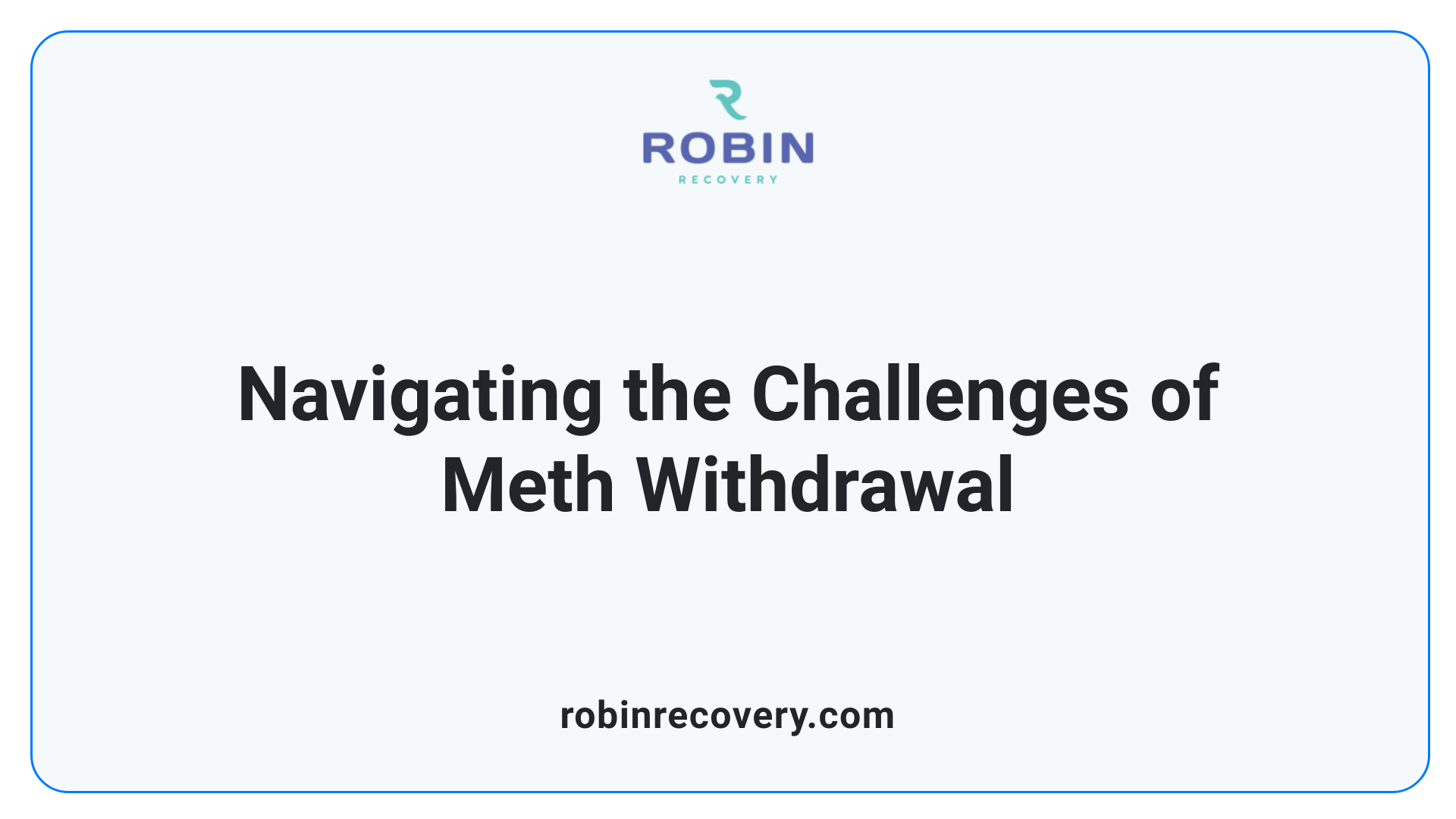
Withdrawal Symptoms and Their Intensity
Quitting methamphetamine can be an arduous journey due to a range of withdrawal symptoms. These symptoms may start just 24 hours after the last use and can include:
- Fatigue
- Depression
- Anxiety
- Irritability
- Intense cravings
- Sleep disturbances
Such symptoms can last from a few days to several weeks, with psychological effects, like mood swings and cravings, potentially lingering for months or even years. This long recovery process demonstrates the mental health challenges faced when trying to quit meth, underscoring the need for a structured recovery plan.
Importance of Medical Detox and Professional Support
Medical detoxification is critical for those seeking to quit meth safely. Supervised detox ensures that withdrawal symptoms are managed effectively, minimizing the health risks associated with the process, including dehydration and severe psychological challenges such as paranoia and hallucinations.
Professional support from healthcare providers is essential for developing effective coping strategies tailored to individual needs. The guidance offered can help manage cravings and offer therapeutic support, significantly boosting the chances of long-term recovery and a healthier life. Without such support, the likelihood of relapse can increase, complicating the path to sobriety.
The Emotional and Psychological Turmoil of Meth Addiction
Cognitive Impairments and Emotional Dysregulation
Methamphetamine addiction significantly disrupts brain function, leading to cognitive impairments and emotional dysregulation. Users often face challenges in decision-making, memory retention, and emotional stability. These effects stem from the drug's alteration of the brain's dopamine system. The emotional fallout can include heightened anxiety, feelings of paranoia, and episodes of confusion.
As individuals continue using meth, the brain's ability to regulate emotions naturally becomes compromised. This can lead to intense mood swings, making it difficult to maintain interpersonal relationships and handle daily stresses without relapsing into drug use. Furthermore, unsettled emotional states can cause users to engage in riskier behaviors, compounding their struggles.
Long-term Psychological Effects Post-Withdrawal
The aftermath of meth withdrawal can leave lingering psychological effects that extend well beyond the acute phase of detox. While the body's physical symptoms may subside within days, psychological symptoms can persist for months, manifesting as depression, fatigue, and intense cravings.
Research indicates that many recovering addicts may not feel pleasure from everyday activities, a lasting impact of the chemical changes caused by chronic use. This difficulty in rediscovering joy can hinder recovery, increasing the risk of relapse. Support tools like therapy and peer support groups are essential during this period, as they help individuals manage the psychological ramifications of their addiction and encourage healthier coping mechanisms.
Effective Strategies and Benefits of Quitting Meth
Benefits of Quitting
Quitting methamphetamine can lead to substantial health improvements. Individuals may experience better mental health, which includes reduced anxiety, improved mood, and diminished feelings of paranoia. Stopping meth use helps restore normal brain function, allowing individuals to enjoy daily activities without the influence of drugs.
Physically, quitting can reverse many harmful effects. For example, individuals can see improvements in heart health, reversing some damage caused by meth use. Additionally, sobriety allows individuals to rebuild personal relationships affected by addiction, fostering connections with family and friends.
Strategies for Overcoming Addiction
Successful recovery from meth addiction necessitates effective strategies. Here are a few:
- Develop a Structured Plan: This should include setting personal goals and outlining a path to achieve them, involving professional help when necessary.
- Engage Support Systems: Surrounding oneself with supportive friends and family can provide encouragement and accountability.
- Utilize Professional Help: Medical supervision during detox is vital for safe withdrawal management and addressing any underlying psychological issues.
- Coping Strategies: Employ techniques such as distraction or reaching out to supportive figures during cravings, which helps in maintaining abstinence.
- Aftercare Programs: Continuing support through therapy and support groups is crucial to avoid relapse and sustain recovery long after quitting.
These combined approaches pave the road to a healthier, drug-free life.
How Long Does It Take for Meth Addicts to Recover?
How long does it take for meth addicts to recover?
Recovery from meth addiction is a complex process that varies greatly among individuals. Generally, it requires a commitment of two to five years for most individuals to solidify meaningful change. This journey is typically divided into five stages:
- Acknowledgment and Awareness: Individuals must first recognize their addiction and accept the need for change, a realization often spurred by a life crisis.
- Seeking Help and Support: Once aware, they begin to seek support from professionals and their personal networks.
- Treatment and Rehabilitation: At this stage, they explore various treatment options and engage in a structured recovery plan, which may include detox and therapy.
- Maintenance and Relapse Prevention: Long-term recovery involves developing maintenance strategies to prevent relapse, underlining the importance of ongoing care.
- Growth and Self-Discovery: Ultimately, individuals focus on personal growth, integrating lessons learned to rebuild a fulfilling life.
What factors influence recovery time?
Several factors can influence the recovery timeline for meth addicts:
- Severity of Addiction: More severe dependencies may prolong the recovery process.
- Co-occurring Disorders: Those also facing mental health issues will require additional time and resources for recovery.
- Support Systems: A strong network of family and friends can expedite healing, while isolation may hinder progress.
- Access to Resources: Availability of treatment programs significantly affects recovery success rates.
In conclusion, while the timeline for recovery can be extensive, the right support, treatment, and commitment to change pave the way for a healthier future.
What is the Relapse Rate for Meth Users?
What is the relapse rate for meth users?
The relapse rate for meth users is alarmingly high, with approximately 92% of individuals who use crystal meth experiencing at least one relapse during their recovery attempts. Initially, about 50% of users manage to stay sober for the first three months of recovery without formal treatment. However, this figure drops drastically to only 11% when no professional assistance is sought.
Long-term recovery outcomes are particularly troubling; after three years without rehabilitation, merely 5% of users remain sober. These statistics illustrate the severity of methamphetamine addiction, where withdrawal symptoms, psychological distress, and changes in brain chemistry make sustained sobriety a formidable challenge.
What challenges do individuals face during recovery journeys?
Many factors contribute to the difficulties encountered during recovery from meth addiction. Users often grapple with intense cravings and low motivation, which can persist for weeks or even months post-cessation. Psychological symptoms such as depression, anxiety, and emotional instability further complicate recovery efforts, increasing the likelihood of relapse.
Additionally, a lack of stable housing and supportive relationships can hinder recovery. Hence, a strong support system—comprising family, friends, and professional counseling—is vital in enhancing the chances for successful, long-lasting recovery from methamphetamine addiction.
Factor Impact on Recovery Relapse Rate 92% experience at least one relapse Initial Sobriety (3 Months) 50% remain sober Long-Term Sobriety (3 Years) 5% remain sober Psychological Challenges Depression, anxiety complicate recovery Importance of Support Systems Crucial for enhancing recovery success
Seeking Help: Pathways to Recovery
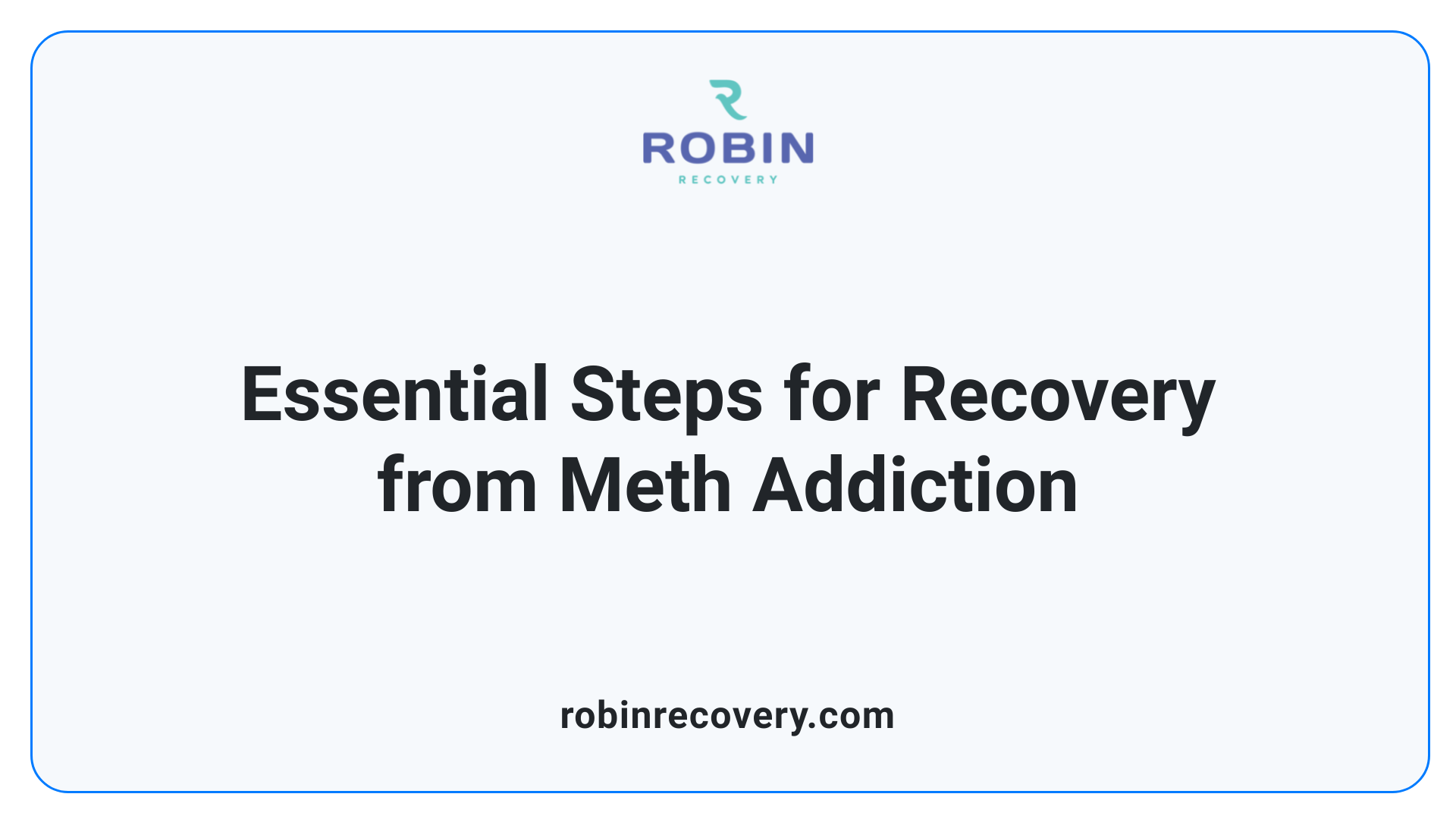
Role of support systems and professional treatment
The journey to recovery from meth addiction can be daunting, but support systems play a crucial role in this process. Family, friends, and support groups offer emotional encouragement, helping individuals navigate the challenges of addiction.
Engaging with professionals is equally important. Medical detoxification is recommended for safe withdrawal management, minimizing potential health risks. Healthcare providers can offer psychological support and develop personalized treatment plans. Effective behavioral therapies, like Cognitive Behavioral Therapy (CBT), play a central role in cultivating coping strategies and reducing cravings.
Importance of continuous support and aftercare
Sustaining recovery involves aftercare strategies that help prevent relapse. Consistent support through therapy and community programs strengthens the recovery journey. According to SAMHSA, various resources, including local treatment facilities and support groups, are available to assist individuals in their journey.
Aftercare that includes fellowship with peers who share similar experiences contributes significantly to recovery. Encouraging shared experiences fosters a sense of community, which can be vital in the recovery process. Continuous access to support systems can improve outcomes by providing encouragement and accountability. These strategies play an essential role in guiding individuals towards a healthier, addiction-free life.
Conclusion: The Journey Toward Sobriety
Quitting meth is a challenging but crucial endeavor. While the journey to recovery is lined with hurdles, the benefits far outweigh the initial difficulties. Overcoming meth addiction not only improves physical and mental health but also restores personal relationships, enhances quality of life, and instills a sense of purpose and achievement. With determination, professional help, and a strong support system, regaining control over one's life is a possible and worthwhile pursuit.
References
- SAMHSA's National Helpline
- Top Reasons to Quit Using Meth - Princeton Detox & Recovery Center
- How to Get Off Meth & Quit for Good
- Meth Withdrawal: Symptoms & Timeline | Oxford Treatment Center
- Why is Meth Addiction So Hard to Overcome? | RCA
- Self-help strategies - Drug Aware
- Methamphetamine | National Institute on Drug Abuse (NIDA)
- Meth Addiction Treatment: How to Quit Meth
- Meth Withdrawal: Symptoms, Timeline and Detox
